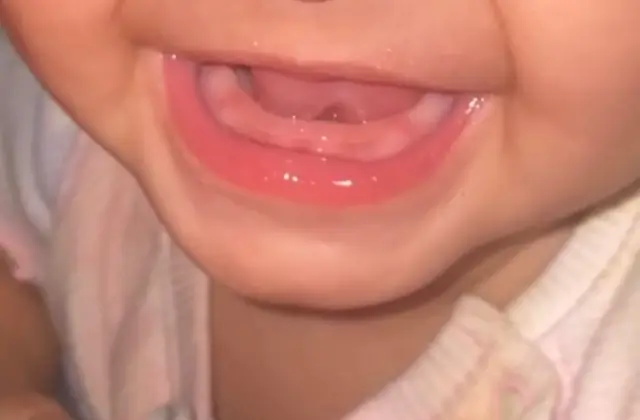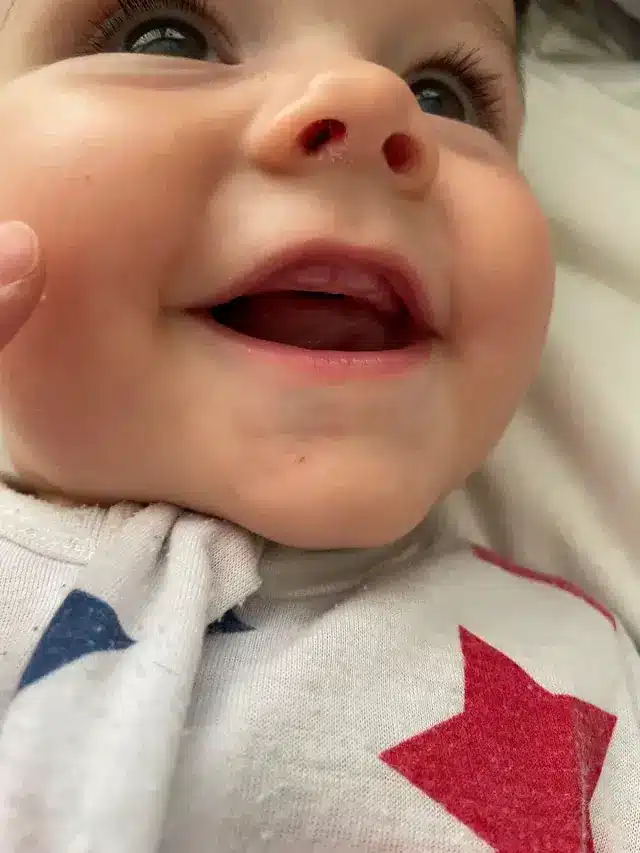As parents eagerly await their baby’s first tooth, delays in teething can raise concerns. Tooth eruption delay in infants is not uncommon, yet it often brings anxiety and confusion. Every child grows at their own pace, but understanding when a delay is normal—and when it may require a professional’s attention—can help families support healthy oral development without panic.
In this guide, we’ll break down the causes, signs, and solutions for late tooth development, and when to speak with your pediatric dentist about it read more.

Tooth Eruption Delay in Infants: Is It Really a Problem?
Parents typically expect the first baby tooth to erupt around 6 months of age. However, some babies don’t show any signs of teething until 9 months or even after their first birthday. Tooth eruption delay in infants becomes a concern only when it significantly exceeds the typical range or is associated with other health signs.
The delay might be completely harmless or might indicate a nutritional, developmental, or genetic issue. A dental evaluation can determine whether your baby’s delay is part of a healthy variation or a sign of something more.
Common Causes of Tooth Eruption Delay in Infants
Understanding delayed teething causes helps reduce unnecessary worry. Several factors can influence when a baby’s teeth begin to erupt:
- Genetics: If parents or siblings had delayed teething, your baby might too.
- Premature birth: Babies born early often reach milestones slightly later, including dental development.
- Nutritional deficiencies: Lack of vitamin D, calcium, or other essential nutrients may slow dental growth.
- Hormonal or systemic conditions: Rare conditions like hypothyroidism or cleidocranial dysplasia can interfere with tooth eruption.
- Low birth weight: Similar to premature babies, low-weight infants may experience slower development overall.
Most delays are not a cause for concern, but they should be monitored, especially if no teeth appear by 18 months.
Delayed Teething and Overall Development
Tooth eruption delay in infants is sometimes linked with other developmental delays. If your baby is also slow to sit, crawl, or talk, it’s wise to consult your pediatrician. While late teething alone isn’t necessarily a red flag, it can be a clue in a broader picture of growth.
In contrast, many healthy, active, thriving babies are simply “late bloomers” in the teething timeline. For them, late teething has no long-term impact.
When to Seek Professional Advice
If your baby hasn’t developed any teeth by 12 to 18 months, it’s reasonable to schedule a visit with a pediatric dentist. Late baby tooth development can sometimes benefit from early assessment. The dentist may:
- Take a panoramic X-ray to check for underlying teeth
- Evaluate jaw and bone structure
- Rule out congenital conditions
The goal isn’t to rush tooth eruption, but to ensure that nothing is interfering with it. Early intervention can help address potential complications before they affect chewing, speech, or alignment.
Supporting Healthy Tooth Eruption at Home
There’s no magic switch to make baby teeth erupt faster, but you can promote oral health through small, consistent actions:
- Gently massage your baby’s gums with a clean finger or damp cloth
- Ensure a diet rich in vitamins and minerals
- Avoid sugary drinks or snacks even before teeth erupt
- Maintain regular pediatric checkups
Creating a nurturing environment helps your baby’s body follow its own natural timeline, including teething.
Myth-Busting: Delayed Teething Doesn’t Always Mean Trouble
One of the biggest fears for parents facing tooth eruption delay in infants is that it signals a serious condition. But in most cases, it’s nothing more than a personal variation. Late teething doesn’t mean late speech, slow brain development, or future dental problems. The permanent teeth develop on a separate timeline, and late baby teeth rarely affect their health.
Trust your instincts, stay informed, and avoid comparing your child to others. Every baby is unique.
How Pediatric Dentists Approach Tooth Eruption Delays
Pediatric dentists are trained to recognize patterns and variations in teething. In cases of delayed teething causes, they’ll start with a comprehensive exam. If no teeth are visible but everything else looks normal, the dentist may simply recommend waiting a few more months.
In other situations, they may look for signs of missing teeth, delayed jaw growth, or enamel problems. If necessary, they’ll work alongside pediatricians or geneticists to ensure your baby’s dental and general development is on track.

Long-Term Outlook for Late Tooth Development
By age 3, most children have their full set of 20 baby teeth. Even if late baby tooth development causes a slow start, most kids catch up naturally. In fact, many children who start teething late end up losing their baby teeth later as well, which can actually reduce the risk of early decay or damage.
Regular dental visits, healthy habits, and patience are all your child really needs to thrive.
Emotional Impact on Parents Dealing With Delayed Teething
The emotional toll of tooth eruption delay in infants shouldn’t be overlooked. Parents often compare their babies to others, especially on social media, where milestone sharing is constant. Seeing other babies with a full set of teeth while yours still has none can trigger anxiety, frustration, or even guilt.
It’s crucial for caregivers to know that they are not alone. Delayed teething happens, and it usually resolves without any lasting impact. Open dialogue with pediatricians and connecting with other parents can relieve much of this stress. Normalizing developmental diversity is just as important as addressing it medically.
Teething Charts: Guidelines, Not Rules
Many parents rely on teething charts as strict deadlines. While these charts can offer general guidance, they’re not absolute. The “average” time for first tooth eruption is just that—an average. Your baby might be ahead or behind, and both are acceptable.
Delayed teething causes often fall within a wide range of normal. Instead of stressing over dates and numbers, focus on your baby’s comfort, overall health, and developmental milestones. If those are on track, chances are the teeth will follow in their own time.
Does Delayed Teething Affect Permanent Teeth?
One of the common concerns among parents is whether late baby tooth development will impact the eruption of permanent teeth. The answer is usually no. While there may be a slight delay in permanent teeth as well, it doesn’t mean the child will face orthodontic or structural issues later on.
In fact, some dental experts believe late eruption of baby teeth may actually be beneficial—it means less time for potential decay or trauma before they naturally fall out. As always, regular dental checkups will ensure that everything is progressing normally.
Nutritional Support to Encourage Eruption
While there’s no direct way to “make” teeth come in faster, proper nutrition plays a big role in supporting natural development. Infants with tooth eruption delay may benefit from a diet rich in:
- Vitamin D: Supports calcium absorption and tooth development
- Calcium: Essential for building strong teeth and bones
- Phosphorus and Magnesium: Aid in the formation of healthy dental tissue
- Breast milk or formula: Provides a balanced source of nutrients during early months
Always consult your pediatrician before giving any supplements or making dietary changes for your baby.

Encouraging Patience and Confidence in the Process
The most important thing parents can do is trust the process. Tooth eruption delay in infants is not a sign of parental failure or a warning of something deeper in most cases. Babies are individuals, and their development will reflect that uniqueness.
Being patient doesn’t mean ignoring concerns. Instead, it means knowing when to act—and when to wait. Empower yourself with knowledge, stay connected with your child’s healthcare providers, and remember: late teeth don’t mean late success. Your baby is blooming right on time—for them read more.
